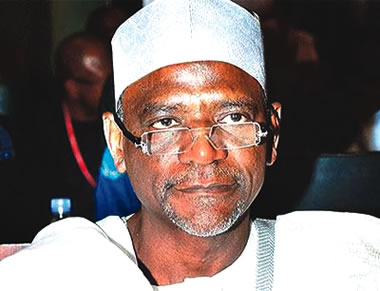
Payment of illegal levies in public schools in the country is common. It has become a staple in public discourse following the rage of a seven-year old primary school pupil in Delta State, against being sent home for her parents’ failure to pay her N800 examination fee. The illegality thrives against the backdrop of the fact that basic education is free in line with the Universal Basic Education programme.
The pupil, Success Adegor, of Okotie-Eboh Primary School I, Sapele, who was always on top of her class, was sent home recently on an exam day. So embittered was she that she preferred being caned to missing a test in arithmetic, her best subject. A woman, whose child was also affected, saw the little girl in her disconsolate mood, empathised, and advised the pupil to follow her back to the school for her to plead on her behalf with the headmistress.
With her steely resolve, Success did not budge. So, she went home to narrate her ordeal to her parents. Unknown to her, a young lady who was dispirited by her experience, recorded her grumbling with a mobile phone; posted it online and it went viral. Success could have been killed on her way home, the way a female student, named Chinyere, of Community Secondary School, Adazi Ani, in Aniocha Local Government Area, Anambra State, was crushed by a truck after she was sent home with four others for not paying school fees in March 2017. Yet, she was in JSS2, a class covered by the free education policy in Nigeria.
The Okotie-Eboh School oddity has jolted the state government into action and exposed the failure of its school system. The headmistress was suspended immediately. Also, the Commissioner for Basic and Secondary Education, Chiedu Ebie, inaugurated a seven-man board of enquiry into the collection of unauthorised levies in public schools. The school, which could easily pass as one of those ravaged by war, represents an archetypal mockery of a learning environment. However, it is currently undergoing a face-lift. For the Success family, the imprudence of the head-teacher has turned into a source of joy. She has received cash gifts and two scholarship awards from the chairman of the Sapele Local Government Area, and public-spirited indigenes of the state. The girl’s parents also met with the Private Secretary of Governor Ifeanyi Okowa.
Ironically, despite the fact that the dust of the Success saga has not settled, six other head teachers in the state have been arrested and demoted for committing the same offence; indicative of the endemic nature of this corruption-driven malfeasance.
Many other states are also mired in this morass. For instance in October 2017, four principals in Edo State were demoted to classroom teachers for collecting between N11,000 and N20,000 for school uniform instead of the N3,000 and N4,000 approved for pupils in Junior Secondary and Senior Secondary Schools respectively. The Chairman of the Edo State Post-Primary Education Board, Gabriel Oiboh, said in addition to their demotion, the errant principals were made to refund the excesses.
Media reports indicate that fleecing of pupils for all manner of levies — exams, handiwork or craft, games and provision of writing desks and chairs— is a preoccupation of teachers across many states. A survey carried out by Leadership newspaper claimed that some LGE primary schools in the Federal Capital Territory, Abuja are not immune to the extortion.
Influenced by the report that school heads in Ekiti State are involved in this misconduct, Governor Kayode Fayemi signed an Executive Order last October that stopped illegal levies. He should not stop at that; it must be followed through, with effective monitoring. The idea behind school inspection or supervision is to enforce quality control in teaching and learning while ensuring that teachers conform to education policies.
Therefore, Okowa should ask his education commissioner about what has become of school inspection by the Inspectorate Division, in the state. Why did it take Success’ fulmination for the authorities to discover what she and other pupils go through in the hands of corrupt head teachers and the decrepit condition of the primary school?
Even more ridiculous is the commissioner’s promise to buy a car for the lady that videoed Success’ foul mood that morphed into a social media buzz. Such a reaction by a public officer does not demonstrate responsible governance. Pat Utomi, a management expert, was enraged by such downright farcical official gesture that he said “one would have expected shame to overcome the machinery of government in Delta, for being incompetent to manage the school system as exposed by the little girl.’’
The free primary education programme, which birthed in 1999 and strengthened by the Universal Basic Education Act 2004, envisages a nine-year formal education. It comprises six years at primary and three years at junior secondary. Besides being free, it is made compulsory for every child of school age. Therefore, it is an aberration for schools to charge pupils levies under any guise. Governors should go beyond paying lip service to free education and fund this foundation of learning adequately by providing the needed equipment and creating the right environment for learning to take place. It is absurd for governors to declare education free in their states, yet, unabashedly tolerate pupils sitting on the bare floor to learn, or in school buildings without roofs.
With the school system entombed in crisis in virtually every state, a lot could still be reversed if governors are intolerant of arm-chair commissioners and education ministry personnel. They should be compelled to move round and feel the pulse of the system for the noticeable bedlam to be addressed. Errant school heads and inspectors deserve punishment to restore sanity to the system.
END

Be the first to comment